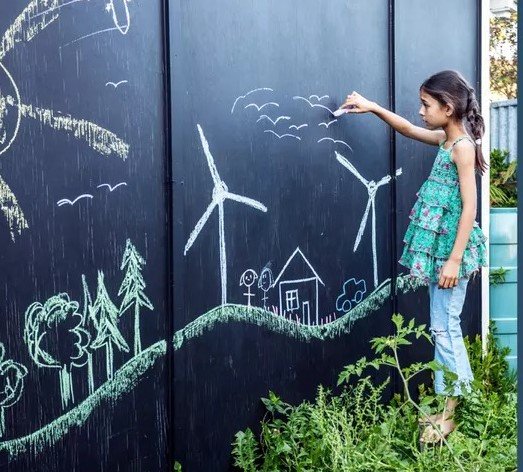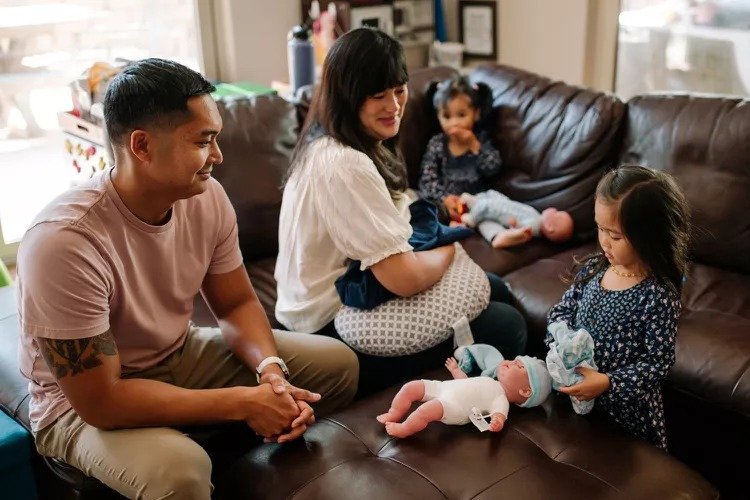How To Help a Child Dealing With Climate Change Anxiety

Source:https://www.parents.com/
Climate change anxiety, or eco-anxiety, refers to chronic distress related to climate change and its effects, distinguishing it from general concern about the issue. While many people worry about climate change, eco-anxiety can be overwhelming and debilitating, significantly affecting mental health. Researchers found that children aged 6 to 12 are particularly vulnerable to both acute and chronic environmental stressors. While they are also more capable of understanding climate change and its expected impacts, this awareness can heighten their stress and anxiety about living in a changing environment.
How to Help a Child Cope With Eco-Anxiety
Keep climate change information age-appropriate: The author feels guilty for unintentionally contributing to their son’s anxiety about climate change by sharing worries about environmental issues during family discussions. Dr. Ziv Cohen, a psychiatrist specializing in eco-anxiety, emphasizes that children look to their parents to gauge their own attitudes and concerns. He advises parents to avoid overwhelming their kids with alarming information, as it can lead to unmanageable anxiety. While the author struggles with their own climate-related fears, they recognize the importance of shielding their son from distressing news and not using him as a sounding board for their worries. Research supports that excessive exposure to alarming events can harm children’s mental health.
Take action together: When discussing climate change with children, it’s essential to provide hopeful and proactive messages. Dr. Cohen suggests acknowledging the planet’s fragility while focusing on practical actions families can take to help. Parents can involve children in activities like local clean-ups, biking to school, and nature walks to emphasize the importance of caring for the environment. Creating a family climate plan together can turn anxiety into action, allowing children to contribute to discussions and solutions. Overall, conversations should promote harmony between humanity and nature, reframing any doomsday scenarios with messages of confidence and responsibility. This approach helps children manage their anxiety and fosters a sense of agency regarding environmental issues.
Reframe conversations to help them turn worries into hope: The positive news is that children are adaptable and open to changing narratives, even after being exposed to alarming climate change realities. Dr. Cohen emphasizes that parents can influence their children’s thinking by reframing discussions to be more positive and supportive. If parents work on their own attitudes, children will likely notice this shift, reinforcing a healthier perspective. While advocacy and actions are essential for making a real difference, Harriet Shugarman stresses the importance of being honest and realistic with children in an age-appropriate manner. The motto at ClimateMama—”Tell the truth, actions speak louder than words, and don’t be afraid”—highlights the need for children to receive truthful information about the climate crisis from trusted adults.
Lean into solutions: In search of hope and inspiration, the author began listening to Jane Goodall’s podcast, Hopecast, which aims to promote positivity and encourage action. Inspired by Goodall’s dedication to the environment, the author decided to share this experience with their son, making it a new family tradition. During one episode, they listened to audio messages from children expressing their concerns about the planet. As the author observed their son in the rearview mirror, they noticed the light in his eyes and how his body language softened as he absorbed the messages from his peers, highlighting the positive impact of shared experiences.
In conclusion, Climate change can be frightening for children, but instead of fostering worry, it’s important to help them channel their concerns into positive action. Engaging in solutions can alleviate their anxiety about climate change. If a child continues to show signs of distress, it’s advisable to consult their pediatrician or a therapist who specializes in treating childhood anxiety.
Read More:https://childreninfobank.com/safebank/how-to-help-a-child-dealing-with-climate-change-anxiety/
Image Source:https://www.parents.com/





